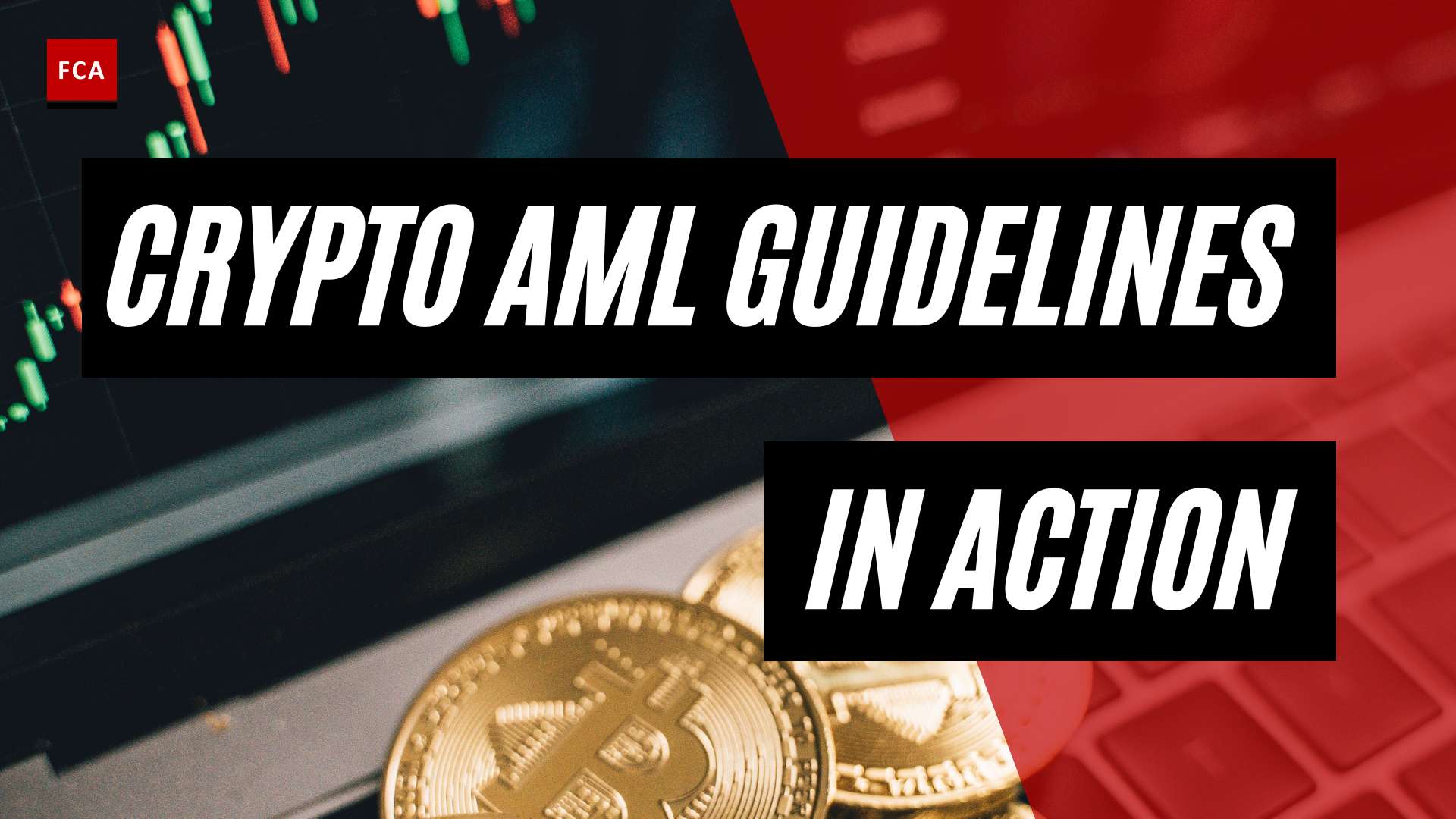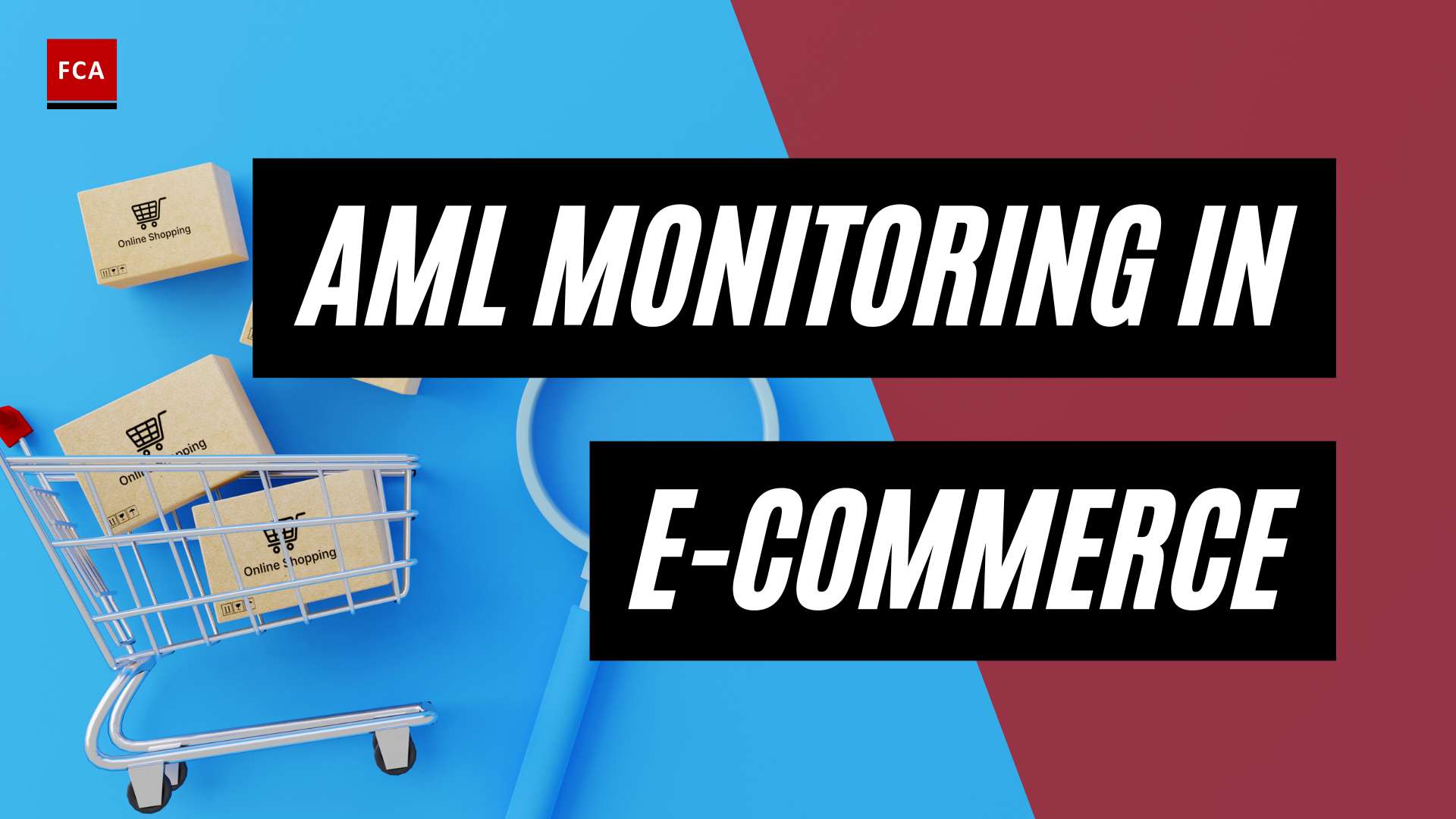Understanding AML Regulations in Cryptocurrencies
Cryptocurrencies have gained significant attention in recent years, not only for their potential financial opportunities but also for their susceptibility to illicit activities such as money laundering. To address these concerns, Anti-Money Laundering (AML) regulations have been introduced to ensure that cryptocurrency transactions are conducted in a transparent and compliant manner.
Importance of AML Regulations in Cryptocurrencies
The implementation of AML regulations in the cryptocurrency industry is of paramount importance. These regulations aim to prevent illicit financial activities, such as money laundering and terrorist financing, from taking place within the cryptocurrency ecosystem. By imposing stringent AML measures on cryptocurrency exchanges and other virtual asset service providers (VASPs), regulators strive to create a secure environment that discourages illicit actors from exploiting cryptocurrencies.
Compliance with AML regulations helps to safeguard the integrity of the financial system by promoting transparency and accountability. It enables authorities to track and monitor suspicious transactions, identify potential risks, and take appropriate actions to prevent financial crimes. Additionally, adhering to AML regulations enhances the credibility and trustworthiness of cryptocurrency platforms, making them more attractive to investors and users.
Recent incidents in the cryptocurrency industry have highlighted the necessity of robust AML policies. For example, Binance, one of the world’s largest cryptocurrency exchanges, recently agreed to a $4.3 billion settlement to resolve multiple federal investigations into violations of U.S. laws, including AML regulations (Justice.gov). This case underscores the significance of robust AML measures and the consequences of non-compliance.
Recent AML Violations in Cryptocurrency Industry
The Binance case mentioned earlier is just one example of the recent AML violations that have occurred in the cryptocurrency industry. The charges against Binance involved the wilful failure to implement and maintain an effective AML program, which resulted in the funneling of illicit funds through the exchange (Justice.gov). The settlement reached in this case marks one of the largest financial penalties in U.S. history and serves as a stark reminder of the consequences of non-compliance with AML regulations.
These recent AML violations demonstrate that regulatory authorities are actively monitoring and enforcing AML laws in the rapidly evolving cryptocurrency space. It reinforces the need for cryptocurrency exchanges and other VASPs to establish robust AML frameworks, implement comprehensive KYC (Know Your Customer) requirements, conduct transaction monitoring, and report suspicious activities as part of their compliance obligations.
To ensure a secure and transparent crypto ecosystem, it is essential for the cryptocurrency industry to continue evolving its AML regulations, adopting innovative compliance technologies, and collaborating with regulatory authorities to stay ahead of emerging risks and safeguard the integrity of the financial system.
By understanding the importance of AML regulations in cryptocurrencies and the consequences of non-compliance, industry players can take proactive steps to develop and implement effective AML policies, fostering a compliant and trustworthy environment for all participants.
Key AML Measures for Cryptocurrency Exchanges
To ensure compliance with Anti-Money Laundering (AML) regulations, cryptocurrency exchanges need to implement key measures that help prevent illicit activities within the crypto space. These measures include Know Your Customer (KYC) requirements, transaction monitoring and reporting, and suspicious activity reporting (SAR).
KYC (Know Your Customer) Requirements
KYC checks are mandatory for crypto operations in most jurisdictions. They aim to identify and verify clients before establishing business relations, permitting transactions, and other activities specified by law (LinkedIn). By implementing robust KYC procedures, exchanges can ensure that they have accurate information about their customers, including their identity and source of funds.
KYC requirements typically involve collecting and verifying customer information, such as full name, address, date of birth, and government-issued identification documents. This information helps exchanges assess the risk associated with each customer and identify any potential red flags, such as connections to illicit activities.
Implementing KYC measures not only helps exchanges comply with regulations but also enhances their credibility and trustworthiness among users. It contributes to a more secure and transparent ecosystem for cryptocurrency transactions (CoinTelegraph).
Transaction Monitoring and Reporting
Cryptocurrency exchanges are required to monitor transactions on their platforms to identify any suspicious activity. Transaction monitoring involves the analysis of transaction patterns, such as the frequency, volume, and nature of transactions, to detect any unusual or potentially illicit behavior.
Exchanges must also report certain transactions to the appropriate authorities as part of their AML obligations. These reports help regulators and law enforcement agencies track and investigate potential money laundering or terrorist financing activities.
By implementing robust transaction monitoring and reporting systems, exchanges can identify and report suspicious activities promptly. This contributes to the overall integrity of the crypto industry and helps prevent illicit finance.
Suspicious Activity Reporting (SAR)
The reporting of suspicious activities is a critical aspect of AML compliance for cryptocurrency exchanges. Exchange operators are required to file suspicious activity reports (SARs) when they encounter transactions or customer behavior that raises concerns about potential money laundering or terrorist financing.
SARs provide detailed information about the suspicious activity, including transaction details, customer information, and any other relevant supporting documentation. These reports are submitted to the appropriate regulatory authorities, who can then initiate investigations and take necessary actions.
Filing SARs is essential for maintaining compliance and assisting law enforcement agencies in their efforts to combat financial crimes. By promptly reporting suspicious activities, cryptocurrency exchanges contribute to the overall security and integrity of the crypto ecosystem.
Implementing and adhering to these key AML measures is crucial for cryptocurrency exchanges to comply with regulations, mitigate risks, and maintain the trust of their users. Failure to comply with AML regulations can result in severe penalties and sanctions, including fines, license revocation, and even criminal charges (CoinTelegraph). By prioritizing AML compliance, exchanges can play a vital role in preventing money laundering and illicit activities within the cryptocurrency industry.
AML Frameworks for Cryptocurrency Exchanges
Cryptocurrency exchanges play a critical role in the implementation of Anti-Money Laundering (AML) measures within the crypto industry. To ensure a secure and compliant environment, exchanges must adhere to various AML frameworks. Two key frameworks are the FATF Recommendations for Virtual Asset Service Providers (VASPs) and local AML regulations and compliance.
FATF Recommendations for VASPs
The Financial Action Task Force (FATF) has issued recommendations for countries to regulate VASPs, including virtual asset exchanges. These guidelines aim to prevent illicit activities within the crypto space and promote a secure environment for digital asset transactions. The FATF’s recommendations cover a range of AML and Counter Financing of Terrorism (CFT) measures, including:
- Know Your Customer (KYC) Requirements: Crypto exchanges are required to implement robust KYC procedures to verify the identities of their customers. This involves collecting and verifying customer information, such as government-issued identification documents and proof of address. By implementing KYC requirements, exchanges can enhance transparency and reduce the risk of money laundering and terrorist financing.
- Transaction Monitoring and Reporting: Exchanges must establish effective transaction monitoring systems to identify and report suspicious activities. This involves setting up mechanisms to detect unusual or potentially illicit transactions, including large transactions, multiple transactions below reporting thresholds, and transactions involving high-risk jurisdictions. By monitoring transactions and reporting suspicious activities, exchanges contribute to the overall effort to combat financial crimes.
- Suspicious Activity Reporting (SAR): When exchanges detect suspicious activities, they are required to submit SARs to the appropriate regulatory authorities. SARs provide crucial information about potential money laundering or terrorist financing activities, enabling authorities to investigate and take necessary actions. By promptly reporting suspicious activities, exchanges contribute to the collective effort to maintain the integrity of the financial system.
By following the FATF recommendations, VASPs, including cryptocurrency exchanges, can help ensure a secure and compliant environment for digital asset transactions. These measures contribute to the broader global effort to combat money laundering and terrorist financing. It is important for exchanges to stay updated on the evolving regulatory landscape and adapt their AML policies accordingly.
Local AML Regulations and Compliance
In addition to the FATF recommendations, cryptocurrency exchanges must also comply with local AML regulations and requirements in the jurisdictions where they operate. Governments around the world have been increasingly imposing stricter AML regulations on crypto exchanges to prevent illicit finance and money laundering activities.
For example, in the United States, the Financial Crimes Enforcement Network (FinCEN) mandates cryptocurrency exchanges to comply with KYC and AML policies to combat illicit finance and money laundering activities. Similarly, the European Union’s 5th AML Directive has introduced more stringent requirements for monitoring and reporting suspicious activities, making it critical for crypto exchanges to comply with these new rules. Countries like Japan have also imposed stricter measures on crypto exchanges, requiring them to track transactions, report suspicious activities, and comply with AML regulations to prevent money laundering activities using cryptocurrencies.
To ensure compliance with local regulations, cryptocurrency exchanges must closely monitor and understand the AML requirements specific to the jurisdictions they operate in. By doing so, exchanges can maintain their credibility and trustworthiness while contributing to the overall goal of creating a secure and transparent crypto ecosystem.
As the regulatory landscape continues to evolve, it is essential for crypto exchanges to stay proactive in implementing robust AML measures. By embracing AML frameworks and complying with local regulations, exchanges can play a crucial role in preventing financial crimes, safeguarding the integrity of the cryptocurrency industry, and fostering wider adoption of digital assets.
Challenges and Solutions for Privacy Coins
Privacy coins, such as Monero and Zcash, have gained popularity due to their focus on anonymous transactions and robust privacy-enhancing technologies. However, these coins also present unique challenges when it comes to regulatory compliance and anti-money laundering (AML) efforts. In this section, we will explore the regulatory concerns with privacy coins, the importance of balancing privacy and compliance, and the potential solutions for implementing KYC and AML measures for privacy coins.
Regulatory Concerns with Privacy Coins
Privacy coins like Monero and Zcash utilize advanced cryptographic techniques to provide a high level of confidentiality in digital transactions. While this appeals to users seeking data protection and privacy, it also raises concerns among governments and regulatory bodies. The difficulty in tracing transactions or linking them to specific individuals makes it challenging for authorities to prevent money laundering, tax evasion, and terrorist financing (LinkedIn).
Regulators worry that the anonymity provided by privacy coins could enable illicit activities and hinder efforts to combat financial crimes. As a result, they may impose stricter regulations to address these concerns and ensure compliance within the cryptocurrency industry.
Balancing Privacy and Compliance
Finding a balance between privacy and compliance is a key challenge when it comes to privacy coins. While users value their privacy, it is essential to address regulatory requirements and prevent misuse of these coins. Striking the right balance ensures the continued growth and acceptance of privacy coins while mitigating the risks associated with financial crimes.
Developers and stakeholders in the crypto industry can advocate for sensible regulations that protect user privacy without stifling innovation. By engaging in constructive dialogue with regulators and demonstrating the benefits of privacy-enhancing technologies, it is possible to address regulatory concerns while upholding user privacy rights.
Implementing KYC and AML Measures for Privacy Coins
To address the regulatory challenges posed by privacy coins, platforms and exchanges that support these coins can implement Know Your Customer (KYC) and Anti-Money Laundering (AML) measures. KYC requirements help verify the identity of users and ensure that transactions are conducted by legitimate individuals. AML measures, such as transaction monitoring and reporting, play a crucial role in identifying and reporting suspicious activities.
Implementing KYC and AML measures for privacy coins can help address regulatory concerns and enhance compliance efforts. By introducing these measures, exchanges can demonstrate a commitment to responsible and transparent operations, which can boost trust and credibility within the industry.
As privacy coins continue to evolve, it is important for developers, industry stakeholders, and regulators to collaborate and find practical solutions that strike a balance between privacy and compliance. By addressing regulatory concerns and implementing appropriate measures, privacy coins can coexist within the regulatory framework, providing users with privacy while maintaining the integrity of the financial system.
The Role of the IMF in AML/CFT Policies
The International Monetary Fund (IMF) plays a crucial role in shaping Anti-Money Laundering and Combating the Financing of Terrorism (AML/CFT) policies globally. With the aim of maintaining the integrity and stability of the international financial system, the IMF provides policy advice, technical assistance, and contributes to the global AML/CFT architecture through standard setting and assessments against international standards.
IMF’s Efforts in Shaping AML/CFT Policies
Over the past 20 years, the IMF has been actively involved in shaping AML/CFT policies. The Fund provides policy advice during Article IV consultations, Financial Sector Assessment Programs (FSAPs), and in the context of Fund-supported programs. These activities help member countries strengthen their AML/CFT frameworks and enhance their compliance with international standards.
Through capacity development programs and technical assistance, the IMF assists countries in building their AML/CFT capabilities. This includes supporting the development of legal and regulatory frameworks, improving the effectiveness of supervisory and regulatory authorities, and enhancing financial intelligence units.
Macro Impacts of Money Laundering and Financial Crimes
The IMF recognizes the macroeconomic impacts of money laundering, financial crimes, and terrorism financing. These illicit activities can have far-reaching consequences for economies and financial systems. Money laundering and financial crimes can lead to hot money flows, banking crises, weak revenue collection, governance issues, reputational risks for financial centers, and loss of correspondent banking relationships. It is essential to understand these impacts to address the underlying vulnerabilities and mitigate the risks associated with illicit financial flows.
Engagement with Civil Society Organizations (CSOs)
In an effort to improve engagement on AML/CFT and broader financial integrity issues, the IMF launched a survey for civil society organizations (CSOs) worldwide. The perspectives and insights gathered from CSOs help the IMF enhance its work in this area. CSOs expressed positive views on the IMF’s AML/CFT efforts and emphasized the need for a greater focus on illicit financial flows, beneficial ownership transparency efforts, and addressing weaknesses in advanced economies.
By engaging with CSOs, the IMF ensures a more inclusive and comprehensive approach to AML/CFT policies. This collaboration helps identify areas of improvement and strengthens the effectiveness of global efforts in combating money laundering and terrorism financing.
The IMF’s commitment to shaping AML/CFT policies reflects the recognition of the significant impact of these financial crimes on economies and financial systems worldwide. By providing guidance, technical assistance, and fostering engagement with various stakeholders, the IMF contributes to the establishment of robust AML/CFT frameworks that promote financial integrity and stability.
Consequences of Non-Compliance with AML Regulations
Failure to comply with Anti-Money Laundering (AML) regulations in the cryptocurrency industry can have significant consequences for exchanges. It is crucial for exchanges to understand and adhere to these regulations to avoid penalties, sanctions, and reputational damage.
Penalties and Sanctions for Exchanges
Cryptocurrency exchanges that fail to implement and maintain effective AML policies may face severe penalties and sanctions. These consequences can include:
-
Fines: Regulatory authorities have the power to impose substantial fines on exchanges that violate AML regulations. The amount of the fine can vary depending on the nature and severity of the violation. For example, Binance, one of the largest cryptocurrency exchanges, agreed to a $4.3 billion settlement to resolve federal investigations into violations of U.S. laws, including AML regulations (Justice.gov). This settlement represents one of the largest financial penalties in U.S. history.
-
License Revocation: Regulatory authorities can revoke the license or registration of an exchange found to be non-compliant with AML regulations. Losing the license to operate can have significant financial and reputational consequences for an exchange, leading to a loss of trust from users and potential legal ramifications.
-
Criminal Charges: In severe cases of non-compliance, exchanges and their executives may face criminal charges. This can result in hefty fines, imprisonment, or both. It is essential for exchanges to prioritize AML compliance to avoid legal consequences.
Impact on Credibility and Trustworthiness
Non-compliance with AML regulations can seriously impact the credibility and trustworthiness of cryptocurrency exchanges. Users expect exchanges to prioritize the security and integrity of their transactions. When an exchange fails to implement robust AML measures, it raises concerns about their commitment to preventing illicit activities, such as money laundering and terrorist financing.
By implementing proper AML policies and procedures, exchanges not only comply with regulatory requirements but also enhance their credibility and trustworthiness among users. AML compliance demonstrates a commitment to maintaining a secure and transparent ecosystem for cryptocurrency transactions. Users are more likely to trust and engage with exchanges that prioritize compliance and take proactive measures to prevent illicit activities.
In an industry where trust and security are paramount, exchanges that prioritize AML compliance not only protect themselves from legal consequences but also contribute to the overall integrity and legitimacy of the cryptocurrency ecosystem.
To ensure compliance and mitigate risks, exchanges must stay informed about the evolving regulatory landscape and implement robust AML frameworks. By doing so, they can establish themselves as responsible and reliable platforms for cryptocurrency transactions, fostering trust among users and regulators alike.
The Future of AML Regulations in Cryptocurrencies
As the cryptocurrency landscape continues to evolve, so do the regulatory frameworks surrounding anti-money laundering (AML) policies. Governments and financial institutions worldwide are recognizing the need for robust AML regulations in the cryptocurrency space to combat illicit activities and ensure a secure and transparent crypto ecosystem.
Evolving Regulatory Landscape
AML regulations for cryptocurrencies have become more stringent globally, aiming to address potential risks associated with money laundering and illicit financing. Regulatory bodies such as the Financial Action Task Force (FATF) have issued recommendations for countries to regulate virtual asset service providers (VASPs), including virtual asset exchanges, and to enforce compliance with AML and Combating the Financing of Terrorism (CFT) policies (Crypto News). These guidelines focus on enhancing transparency, accountability, and the implementation of effective AML measures within the crypto industry.
Countries like the United States, Japan, and the European Union have also introduced specific AML regulations for cryptocurrencies. For example, the Financial Crimes Enforcement Network (FinCEN) in the United States mandates cryptocurrency exchanges to comply with Know Your Customer (KYC) and AML policies to combat illicit finance and money laundering activities (Crypto News). The European Union’s 5th AML Directive has added more stringent requirements for monitoring and reporting suspicious activities, making compliance with AML regulations critical for crypto exchanges (Crypto News). Japan’s Financial Services Agency (FSA) has also imposed stricter measures on crypto exchanges to prevent money laundering activities using cryptocurrencies (Crypto News).
Innovations in Compliance Technologies
With the increasing regulatory focus on AML compliance in the cryptocurrency industry, innovative technologies are emerging to assist exchanges in meeting their regulatory obligations. These technologies leverage artificial intelligence, machine learning, and data analytics to automate risk assessment, transaction monitoring, and suspicious activity detection.
By implementing advanced compliance technologies, cryptocurrency exchanges can enhance their ability to identify and mitigate potential money laundering risks. These solutions can analyze vast amounts of transactional data in real-time, flagging suspicious activities and providing actionable insights to compliance teams.
Ensuring a Secure and Transparent Crypto Ecosystem
The future of AML regulations in cryptocurrencies aims to create a secure and transparent ecosystem that fosters trust among users and regulators. By implementing effective AML measures, exchanges can enhance their credibility and trustworthiness (CoinTelegraph). Compliance with AML regulations not only helps exchanges adhere to regulatory requirements but also contributes to the overall integrity of the cryptocurrency industry.
Ensuring a secure and transparent crypto ecosystem requires collaboration between regulators, industry participants, and technology providers. Continuous dialogue, information sharing, and best practice exchange are essential in developing and refining AML regulations that strike a balance between regulatory compliance and industry innovation.
In conclusion, the future of AML regulations in cryptocurrencies is characterized by an evolving regulatory landscape, innovations in compliance technologies, and a collective effort to create a secure and transparent crypto ecosystem. Adherence to AML regulations is crucial for cryptocurrency exchanges to maintain compliance, foster trust, and contribute to the overall integrity of the industry. As the cryptocurrency industry continues to mature, it is expected that AML regulations will continue to evolve, adapting to new challenges and advancements in technology to combat money laundering and illicit financial activities effectively.









